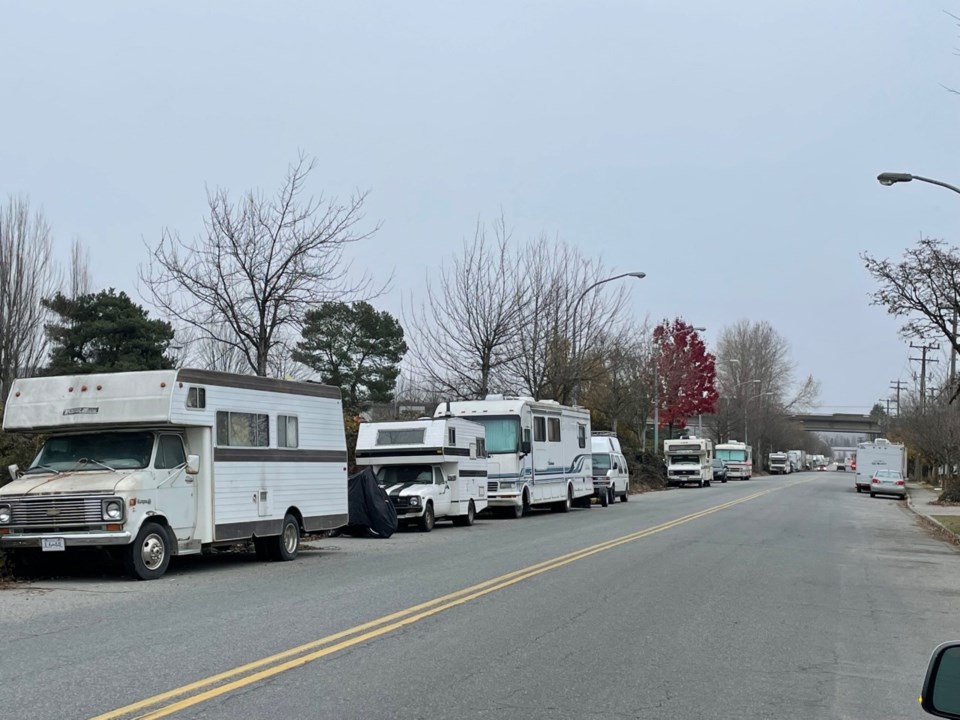“It’s about to blow up in our faces,” is how outreach worker Hugh Freiberg put it.
“It” being the horrendous conditions in which some people live, not in another part of the world, or even Vancouver’s Downtown East Side, but right here in this affluent city of Richmond.
Horrendous conditions include spending the night under a pile of blankets with nothing but an old golf umbrella to protect you from snowfall and icy winds.
Our story (Page 13) was prompted by research carried out in Richmond by the Union Gospel Mission and presented to city council on Monday.
The report outlines the supports currently available to people in poverty. It recognizes the angels among us who trudge out in the middle of the night to bring a hot meal to some of those living rough. However, it also highlights the gaping holes in our social safety net and points to an untenable reliance on donations and volunteers.
This brings us to the question of charity.
Right now, we’re in the throes of charity season. Everyone, including us, are hammering hard the charity/donation message. Two weeks ago we had on our front page a story about the Christmas Fund Toy Drive, last week we wrote about a blanket drive, in this week’s paper we have a story about a toy fund for BC Children’s. And if you logged into your email on Tuesday, you would have been inundated with “Giving Tuesday” requests.
While it can be overwhelming, the need is real, people are truly suffering.
According to Freiberg, the number of people he sees living under umbrellas, behind garbage bags and in vehicles in Richmond far exceeds what he saw pre-pandemic.
Meanwhile, a long-time organizer with the Richmond Christmas Fund’s Toy Drive said never in his 16 years with the organization has he seen so many people lined up, in hopes of putting a couple of donated presents under the tree for their kids.
But while the drives are on and the need is real, there lurks the question of sustainability. As the Union Gospel report shows, far too much is being asked of too few volunteers and faith-based organizations. If we truly want to tackle poverty, we have to look at systemic problems, income disparity and the need for the government to take more ownership.
In next week’s paper, we will look in more depth at the report’s proposed solutions, but, spoiler alert, they won’t include asking caring citizens to give more.
The debate between charity and government services is nothing new but often comes up regarding food banks. While some see food banks as an example of active, caring citizenship, others say they have eroded support for state programs.
Canada’s first food bank opened in Edmonton in 1981 as a stop-gap solution to an economic crisis in that city, resulting from massive layoffs in the energy sector.
Currently, the oil and gas sector earn tens of billions of dollars per quarter, but the need for food banks has hardly abated.
In fact, far from being a stopgap, food banks across the country have become vital institutions. They no longer supplement our welfare system, in many cases, they are the welfare system.
We need to take a hard look at why that’s the case and whose interests that serves.
Next week, the Christmas Fund will hold its largest fundraiser of the year at the Porsche Centre, where those with the means will generously bid on items that have been generously donated.
This is all good. Thousands of dollars will be raised to help make the season a little brighter for many in this community.
But while we’re there (and I do plan to be there) we ought to consider the systems in place that create such income disparity and the desperate need for charity in the first place. If we don’t, as Freiberg says, it may well “blow up in our faces.”



